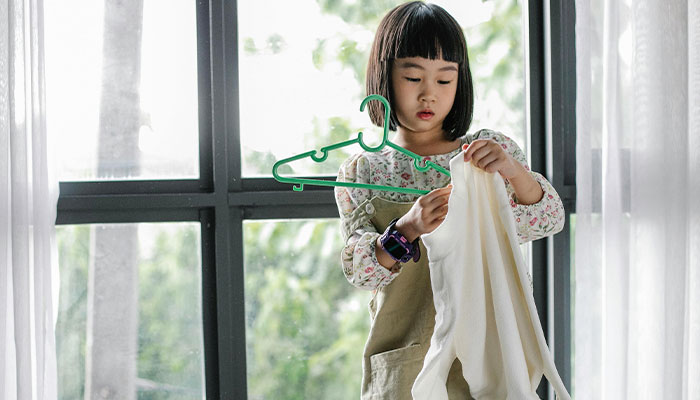The “eldest daughter syndrome” is now officially a scientifically proven phenomenon, as a new study showed a correlation between early maturity in first-born daughters and maternal stress during pregnancy.
Oldest sibling and author of the book Paris, My Love, Yael Wolfe, often felt the lines between her role and her mother’s role were blurred.
She told HuffPost: “By the time my youngest brother was born when I was almost 11, I was overwhelmed with feelings of responsibility for his welfare.
“I used to sit by his crib and watch him sleep just to make sure he was safe.”
“Eldest daughter syndrome” was validated by a new study linking early maturity in first-born daughters to maternal stress

“It wasn’t that I thought my mother wasn’t competent, but more that I felt we were both responsible for the family by that point in my life.
“As if I was literally [the] ‘other mom,’ rather than big sister.”
The “eldest daughter syndrome,” which, despite not being listed as an official diagnosis in the DSM-V, has become somewhat of a pop psychology term often discussed on social media.
“If you are the oldest sibling and also a girl you may be entitled to financial compensation,” a woman joked on X (formerly known as Twitter).

Nevertheless, a University of California, Los Angeles-led research team found that, in certain instances, first-born daughters tend to mature earlier, enabling them to help their mother rear younger siblings.
Moreover, the researchers found a correlation between early signs of adrenal puberty in first-born daughters and their mothers having experienced high levels of prenatal stress.
Adrenal puberty refers to a phase of development during which hormonal changes occur, primarily involving the adrenal glands, and the age of when this phase occurs matters because it is during this phase that skin, body hair, and the brain develop.
Additionally, adrenal puberty processes are reportedly believed to foster social and cognitive changes. As a result, the study showed that superficial physical changes correlated with emotional maturity.
The study revealed that first-born daughters often mature earlier, with early signs of adrenal puberty

According to Jennifer Hahn-Holbrook, one of the co-authors of the study and an assistant professor of psychology at the University of California, Merced, when times are tough and mothers are stressed during pregnancy, it’s in the mother’s best interest for their daughter to socially mature at a quicker pace.
The psychology expert said: “It gives mom a ‘helper-at-the-nest’ sooner, aiding the women in keeping the latter offspring alive in difficult environments.”
The study posited that girls became mentally mature enough to care for their younger siblings while not being physically capable of having their own children.
Meanwhile, older brothers were seemingly off the hook when it came to this kind of parentification, as the researchers did not find the same result in boys or daughters who were not firstborn.

Jennifer said: “One reason that we didn’t find this effect in first-born children who are sons could be that male children help less often with direct childcare than female children do, so mothers have less of an adaptive incentive to speed their social pubertal development.”
The results of this study, published in the February issue of Psychoneuroendocrinology, involved 15-year-old research on various families, from the pregnancy stage to the babies’ teen years.
On average, the women chosen for the study were 30 years of age and pregnant with one child, not twins. Approximately half of the women were undergoing their first pregnancy.
At five different stages of pregnancy, the women’s stress, depression, and anxiety levels were measured and then measured cumulatively, as per HuffPuff.
In challenging times, maternal stress during pregnancy prompts daughters to mature faster, serving as an early “helper-at-the-nest”
@katimorton The 8 signs you have eldest daughter syndrome… #eldestdaughter #siblings #siblingcheck ♬ original sound – Kati Morton, LMFT
The depression assessment reportedly asked the women to rate the truth of statements such as “I felt lonely,” while the anxiety question asked how often they felt particular symptoms, like jitters.
Of the children born to these mothers, 48% were female and 52% were male. Results showed that the eldest girls matured the fastest when their mothers experienced high levels of prenatal stress.
The findings echoed author Yael, who said: “I’m not at all surprised by what the study found.
“My story is slightly different, I went through true puberty, not just adrenal puberty, at 12, though I suspect I experienced an early cognitive maturation.”
“Being parentified as a child takes away from your own childhood,” a reader commented


















